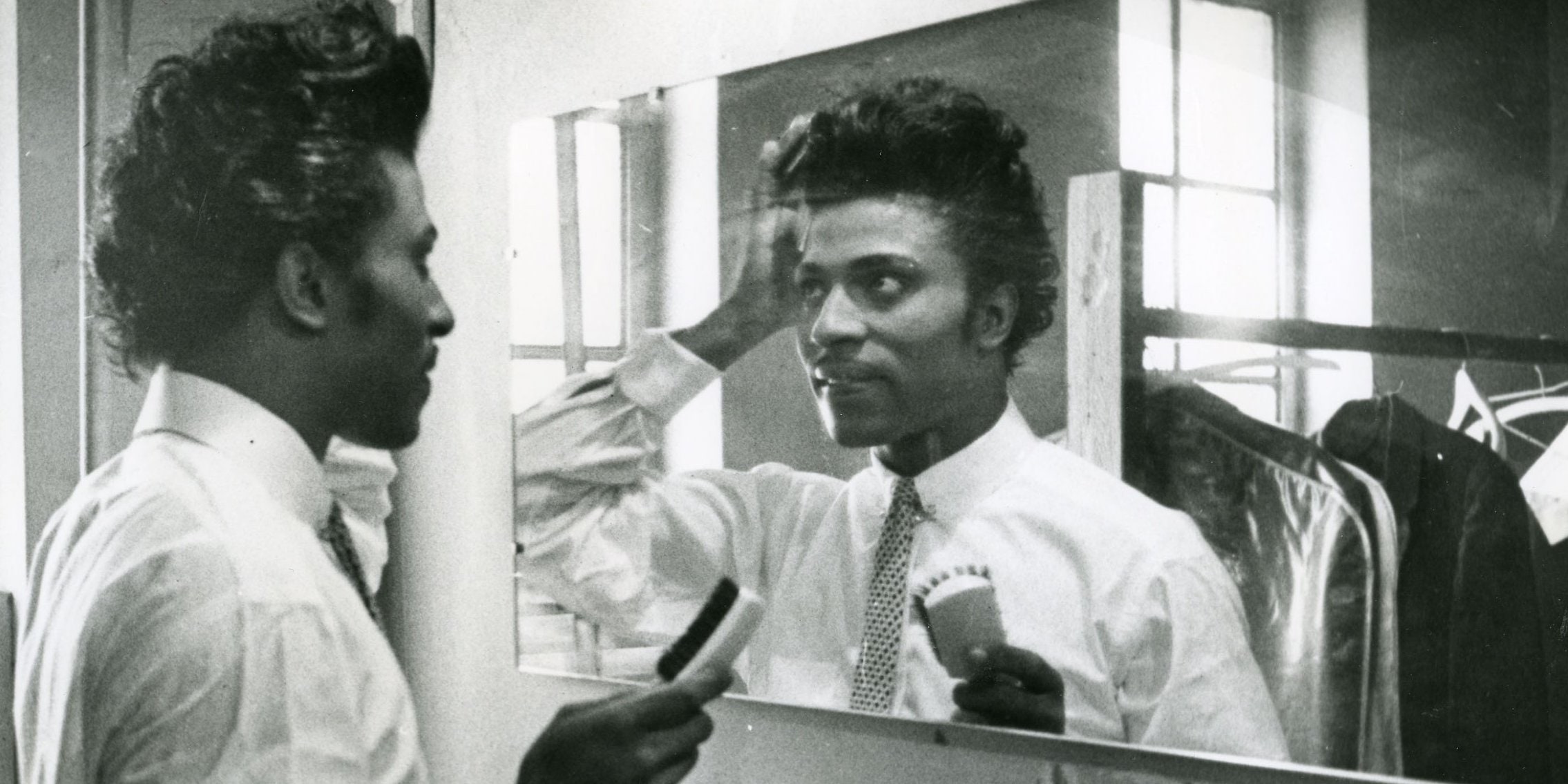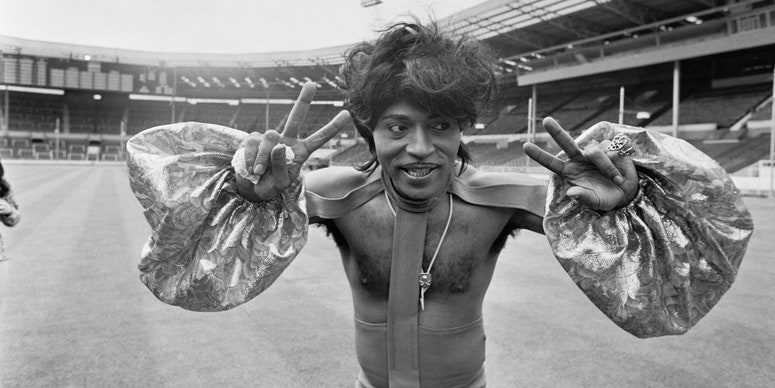Gyrating across piano tops and glammed up in seductive makeup, Little Richard left a seismic, spangled impact on rock music from the beginning. The Macon, Georgia-born singer’s decades-long career, kicked off by the rollicking late-1950s singles “Lucille” and “Tutti Frutti,” simultaneously injected queerness and Black music onto the charts and into the general consciousness. Up until his death in 2020, Richard ran full-steam ahead so that everyone from Elvis to the Beatles to David Bowie could jog behind him. He was an outspoken superstar, yet he endured a lifetime of slights in the department of firsts, rarely given his flowers as a rightful architect of rock’n’roll.
Little Richard: I Am Everything works to rectify that error. Director Lisa Cortés frames her subject in the rarefied light he deserves, weaving in archival interviews with Little Richard alongside a multifaceted group of talking heads: family, friends, and neighbors; ethnomusicologists and scholars; plus the long tail of artists who have been influenced by him, including Mick Jagger, Billy Porter, Nona Hendryx, and John Waters, who confesses his pencil-thin mustache is a “twisted tribute” to Richard. Though the film generally goes beat by beat through his life, capping at his moving recognition at the 1997 American Music Awards, I Am Everything engagingly dovetails the main points of Richard’s life with performances by musicians covering his work or the occasional eye-popping montage to break up the usual rock-doc flow.
Born Richard Penniman, the singer was steeped in the gospel and blues that coursed throughout Macon. He was 14 when he first took the stage, for an impromptu duet with Sister Rosetta Tharpe, a vivid memory retold in the film as his origin story. He started performing on the Chitlin’ Circuit, occasionally in drag, even as homosexuality remained illegal. I Am Everything is thorough in capturing this emergent arc in Richard’s life, illuminating influences like Tharpe alongside lesser-known artists like Esquerita, who taught Richard how to play piano and, through his own brazen, queer performance style, helped him formulate a femme vision for himself.
At one point, in an old interview, Little Richard explains that he’d exaggerate his costumes and makeup throughout the ’50s as a form of protection. “It wasn’t just a gay thing,” he says. “To be Black and to work for white girls, I had to look that way. If I didn’t wear makeup and look effeminate, I couldn’t work the white clubs.” These interview clips are the film’s backbone, revealing Richard’s keen awareness of the music industry as well as his spiky, quick wit and relentless sense of humor. “I’m not conceited,” he shoots off during a memorable appearance on Arsenio Hall, “I’m convinced!”
The most fascinating throughline in I Am Everything is the interplay between Richard’s out-and-proud queer identity and the dueling, deeply religious side that lurked underneath. “I would get up off an orgy and go pick up my Bible,” he says, highlighting how both sides existed in himself at all times. Richard’s roots in the church fostered his innate musicality as well as his deep-rooted sense of shame. He hardly spoke about being explicitly gay in public, and eventually fervently denied that he ever was, a point the documentary doesn’t shy away from while giving him the grace of knowing “how much he had to hold” on a public stage, as scholar Zandria Robinson notes. He experienced several religious reawakenings later in life and returned to gospel music, married his wife, Ernestine, and attempted to rehab his image, throwing his gaudiest rings into the ocean during the crisis of faith. That he returned in the ’70s and ’80s to fall down a steeper, uncontrollable decline with drugs and sex only makes his story more heartbreaking. “You talk about rock bottom,” his voice intones at one point, “I’ve been below the rocks, where it was no bottom.”
Those moments in I Am Everything imbue the documentary with a deeper pathos. Even for those who already recognize Little Richard as the foundation of mid-20th century American pop culture, the film offers surprises as it charts his many lives. In each of his thundering live performances throughout the years, sporting a gleaming suit with sweat lining his brow as he pounds away at the keys of his piano, you see the outrageous thrill and grace of spirit that powered his music up close.









